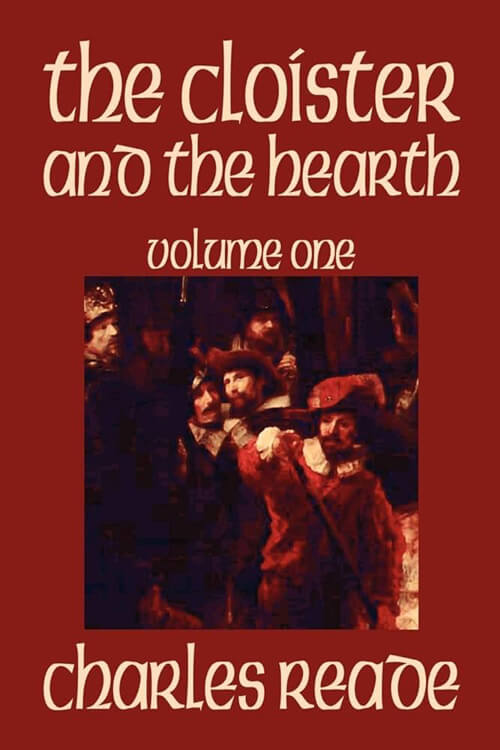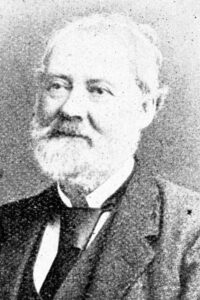
The Cloister and the Hearth Maid, wife and widow: a matter-of-fact romance
Not a day passes over the earth, but men and women of no note do great deeds, speak great words, and suffer noble sorrows. of these obscure heroes, philosophers, and martyrs, the greater part will never be known till that hour when many that are great shall be small, and the small great; but of others the world’s knowledge may be said to sleep: their lives and characters lie hidden from nations in the annals that record them. The general reader cannot feel them, they are presented so curtly and coldly: they are not like breathing stories appealing to his heart, but little historic hail-stones striking him but to glance off his bosom: nor can he understand them; for epitomes are not narratives, as skeletons are not human figures.
Thus records of prime truths remain a dead letter to plain folk: the writers have left so much to the imagination, and imagination is so rare a gift. Here, then, the writer of fiction may be of use to the public – as an interpreter.
There is a musty chronicle, written in intolerable Latin, and in it a chapter where every sentence holds a fact. Here is told, with harsh brevity, the strange history of a pair, who lived untrumpeted, and died unsung, four hundred years ago; and lie now, as unpitied, in that stern page, as fossils in a rock. Thus, living or dead, Fate is still unjust to them. For if I can but show you what lies below that dry chronicler’s words, methinks you will correct the indifference of centuries, and give those two sore-tried souls a place in your heart – for a day.
It was past the middle of the fifteenth century; Louis XI was sovereign of France; Edward IV was wrongful king of England; and Philip “the Good,” having by force and cunning dispossessed his cousin Jacqueline, and broken her heart, reigned undisturbed this many years in Holland, where our tale begins.
Elias, and Catherine his wife, lived in the little town of Tergou. He traded, wholesale and retail, in cloth, silk, brown holland, and, above all, in curried leather, a material highly valued by the middling people, because it would stand twenty years’ wear, and turn an ordinary knife, no small virtue in a jerkin of that century, in which folk were so liberal of their steel; even at dinner a man would leave his meat awhile, and carve you his neighbor, on a very moderate difference of opinion.
The couple were well-to-do and would have been free from all earthly care but for nine children. When these were coming into the world, one per annum, each was hailed with rejoicings, and the saints were thanked, not expostulated with; and when parents and children were all young together, the latter were looked upon as lovely little playthings invented by Heaven for the amusement, joy, and evening solace of people in business.
Read or download Book
Charles Reade
Charles Reade (8 June 1814 – 11 April 1884) was a British novelist and dramatist, best known for The Cloister and the Hearth.
Life
Charles Reade was born at Ipsden, Oxfordshire, to John Reade and Anne Marie Scott-Waring, and had at least four brothers. He studied at Magdalen College, Oxford, taking his B.A. in 1835, and became a fellow of his college. He was subsequently dean of arts and vice-president, taking his degree of D.C.L. in 1847. His name was entered at Lincoln’s Inn in 1836; he was elected Vinerian Fellow in 1842 and was called to the bar in 1843. He kept his fellowship at Magdalen all his life but, after taking his degree, he spent most of his time in London. William Winwood Reade, the influential historian, was his nephew.
Allusions
Ira Gershwin’s lyric “It’s never too late to Mendelssohn…”, which appears in both Oh, Kay! and Lady in the Dark, is a play on the title of Reade’s book. John Betjeman’s poem “In Willesden Churchyard” includes a reference to “Laura Seymour’s grave-/ ‘So long the loyal counselor and friend’/Of that Charles Reade whose coffin lies with hers/Was she his mistress?” followed by a long imagined passage about their possible relationship.
Works
- Gold! (1853, play)
- Masks and Faces (1852, play)
- Peg Woffington (1853, novel)
- Christie Johnstone (1853, novel)
- The Courier of Lyons (1854, play. Also known as The Lyons Mail)
- Clouds and Sunshine and Arts (1855)
- It Is Never Too Late to Mend (1856, novel)
- The Course of True Love Never Did Run Smooth (1857)
- White Lies (1857, novel)
- The Box Tunnel (1857, short story. Only published in book form in America)
- Autobiography of a Thief (1858, novelette about a train robbery)
- Jack of All Trades. 1858. (novelette about the elephant Mademoiselle D’Jeck)
- Love Me Little, Love Me Long (1859, novel)
- A Good Fight and Other Tales (1859)
- The Eighth Commandment (1860)
- The Cloister and the Hearth (1861)
- Hard Cash (1863, novel)
- Griffith Gaunt; or, Jealousy (1866, novel)
- Foul Play (1869, novel)
- Put Yourself in His Place (1870, novel)
- A Terrible Temptation (1871, novel)
- Shilly-Shally (1872, unauthorized stage adaptation of Anthony Trollope’s Ralph the Heir)
- A Simpleton (1873)
- The Wandering Heir (1873)
- Trade Malice (1875)
- A Woman Hater (1877)
- Golden Crowns (1877)
- Drink (1879)
- The Lyons Mail (1877)
- Single Heart and Double Face (1884, novel)
- A Perilous Secret (1884, novel)






